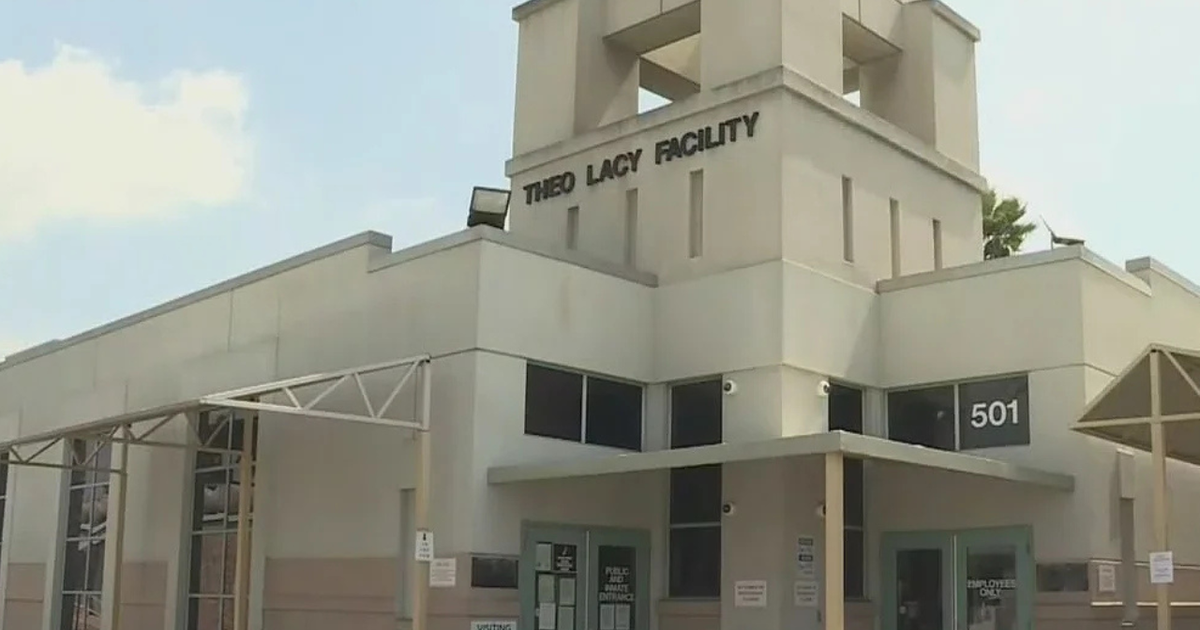Sheriff Baca Backs Plan To Transfer Inmates To LA Jails
LOS ANGELES (CBS) — Sheriff Lee Baca on Tuesday suggested that a proposal by Gov. Jerry Brown to shift some services from state to local governments could be "a crime fighting opportunity."
The county's top law enforcement officer made clear that agreements of funding and liability were key to his department's ability to take on some of the state's roles.
But he also seemed to surprise some members of the Board of Supervisors with his willingness to consider taking on new responsibilities.
"These criminals are ours," Baca said. "They begin here and they're coming back here."
He called the state criminal justice system "broken," adding "we have an opportunity to fix it."
Baca said he had more faith in local resources, which he called flexible and innovative, to manage reform, particularly in the area of parolee supervision.
The sheriff appeared before the board to discuss several proposals as part of an overall plan to transfer an estimated $1.4 billion in programs and financial responsibilities, including moving low-level offenders (non-violent, non-serious and non-sex offenders) from state prisons to county jails; shifting responsibility for an estimated 30,000 or more parolees from state to county personnel; sending 1,300 high-risk juvenile offenders to county facilities; and transferring financial responsibility for judicial court security to the county.
"I don't agree with state prisoners being moved to county jails even if they're not, not, not," said Baca, referring to the non-violent, non-serious and non-sex offender status of the prisoners proposed to be moved.
But William Fujioka, the county's chief executive officer, said the county could handle the shift under certain conditions, including changing the definition of low-level offenders to exclude 28 more crimes suggested by the District Attorney's Office, expanding legislation that allows for electronic monitoring of sentenced offenders, and accessing funds for jail construction.
Ultimately, the sheriff said he while he felt it was critical that the county was "not committing to a state-imposed process that isn't practical," he wanted to discuss the matter of low-level offenders with the CEO further.
"I'm pleading more for time to answer this in a more comprehensive way," rather than just offering opinions, said Baca.
But Supervisor Zev Yaroslavsky warned that the state was moving quickly to set language for a vote on the matter and "once the decision's been made, it's going to be very hard to unring that bell."
He and Supervisor Michael Antonovich seemed caught off-guard by the sheriff's position.
As for the governor's other proposals, Baca seemed to welcome taking over responsibility for monitoring parolees, "so long as the money is there and the indemnity is there."
He suggested that the transfer of responsibility could take as long as four to five years to implement but said that "the question is `are state resources more effective than local resources"' and seemed confident the answer was no.
If police and sheriff's deputies had GPS and mapping technology in patrol units, they could effectively monitor all parolees county-wide and "there would be a blanketing of 24-7 monitoring capability," said Baca.
Both the sheriff and CEO said the state's plan to shut down its Department of Juvenile Justice and send those minors to the county could not be supported.
"We have neither the facilities nor the staff to handle that population," said the CEO.
"You're talking about kids who may have murdered two or three people by the age of 13," said Antonovich.
As for court security, sheriff's deputies already provide security to the courts, but the financial and management responsibility rests with the state. The administration says the state has too little control over staffing and proposes a lump sum transfer of $530 million for the county to negotiate directly with the courts on security.
Fujioka said if responsibility rests directly with the county, they would be beset by demands to increase staffing and unable to manage the requests given the fixed level of funding.
The example highlights the overarching concern with the governor's plan for realignment. If funding is fixed for programs that will have increasing costs over time, the county's deficit will grow until they are simply unable to provide services. Unlike the state, the county cannot levy taxes to cover new costs.
Fujioka's presentation to the board included an analysis of how realignment would impact public health, including mental health, and social services, including child welfare programs. He estimated that roughly $1.4 billion in program and financial responsibilities were included in the proposed transfer, growing to $1.87 billion by 2014-15.
The report is available at www.lacounty.gov as a link to today's board agenda.
No action was taken by the board today. Staffers, including Sheriff's Department personnel, will continue to refine their analysis and recommendations for the board.
(©2010 CBS Local Media, a division of CBS Radio Inc. All Rights Reserved. This material may not be published, broadcast, rewritten, or redistributed. Wire services contributed to this report.)







